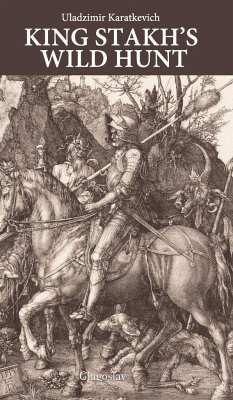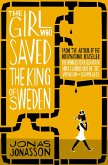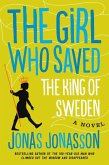On a late rainy evening a young scientist, folklorist Andrey Belaretsky finds himself lodging overnight in a mysterious castle belonging to the Yanovskys, an old noble family. There he meets the hostess of the house, Nadzezhda Yanovsky, a neurotic young thing and the last descendant of her family. Fears and terrible premonitions, for which she believes to have substantial grounds, overpower her. The act of betrayal by her far ancestor Roman Yanovsky the Old brought the curse on the family for twenty generations to come, and has since claimed lives of all the young noble's relatives under bizarre and unnatural circumstances. Nadzeya expects her nearing demise in terror, moreover supported by the recent signs of the upcoming tragedy. Ghosts of the Little Man and the Lady-in-Blue were sighted wandering around the castle, and out in the fields from time to time shows itself the Wild Hunt. Belaretsky collects his wits and bravery, and decides to remain in the castle for a while to assist the hostess Yanovsky in getting rid of the ghosts, whose existence he dismisses wholeheartedly. Soon he beholds the appearance of strange creatures, along with several mysterious deaths in the cursed family's circle. Finally, Belaretsky himself barely escapes the Wild Hunt, a group of twenty silent ghostly knights, dashing through the watery swamps and delivering death to everyone who obstructs their way. Driven by the desire to discover the truth to the horrible mystery of the Yanovskys, the young man resorts to whatever is available to him so as to stop the Wild Hunt and free the inhabitants of the Marsh Firs from their now nearly eternal fear. The stranger as he is, having unhallowed the ghosts of the cursed place, Belaretsky has yet much to learn indeed. King Stakh's Wild Hunt is a suspense mystery thriller, set against a historical background. The story kicks off from the book's first pages, throwing the reader into the atmosphere of a dark intense fear before the inevitable. It doesn't take long for the reader to begin anxiously accompanying Belaretsky on the swamps, meeting strange personae here and there, all of them either mad or scared, or hiding something important, and at times simply miserable. The canvas of this detective story includes a personal theme of the author's sad concern for his nation's destiny. The search for the truth that unites the novella's characters is in fact the author's contemplation - which he passes on to the reader - of the society in the late XIXth century, its conditions and its prospects for the future.
Hinweis: Dieser Artikel kann nur an eine deutsche Lieferadresse ausgeliefert werden.
Hinweis: Dieser Artikel kann nur an eine deutsche Lieferadresse ausgeliefert werden.








